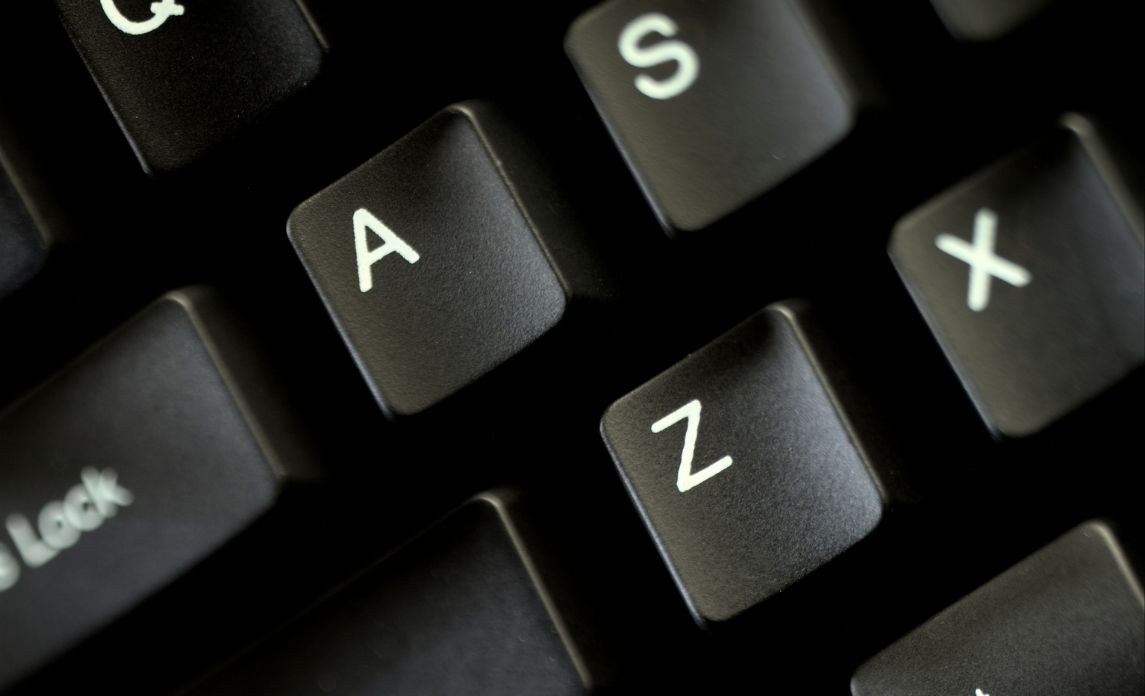Keeping an office clean can be quite a chore, literally and figuratively. Still, it’s a necessary task—one that can affect not just everyone’s health and wellbeing, but also productivity and efficiency.
One of the best things to do to ensure the cleanliness of your workplace is to hire professional cleaners. They have the latest tools as well as training, ensuring thoroughness and efficiency.
Of course, despite having a cleaning company to do the bulk of the job, every employee still has a responsibility to pitch in. There are a lot of things to keep in mind so to make things easier, here’s an A to Z checklist. Using this can simplify plenty of day-to-day cleaning tasks, and even guide professional cleaners regarding the things they need to prioritise.
Without further ado, here’s a straightforward A to Z office cleaning checklist:
A
Allergies. Always consider someone’s allergies when cleaning. Dust frequently and use hypoallergenic cleaning products.
Antibacterial Wipes. These are great for quick clean-ups until people can wash their hands properly.
Algae. Algae can be a problem if you have water fixtures like indoor fountains. Be diligent about cleaning to prevent build-up.
B
Bathroom. Keeping the bathroom clean is paramount. Don’t just focus on the bowl, either. Make sure to clean the sinks, floor, and fixtures as well.
Bleach. Use EPA-approved bleach and check the label so you know what kinds of germs can be killed.
Baking soda. This is an all-around cleaning product that even professional cleaners swear by it. Keep an open container in areas where unpleasant odours tend to accumulate, like the kitchen or bathroom.
Books and files. Don’t just clean the shelves, clean the books and files as well. They only need a bit of dusting from time to time.
Broom (and dustpan). A good old broom is perfect for sweeping dust off non-carpet surfaces.
C
Carpet. Keep carpets and rugs in good shape by vacuuming regularly. For deep-cleaning, call the experts!
Cabinets. Wipe cabinet doors and handles at least once a week. Clean and organise their contents as well.
Ceilings. Use brooms or brushes with telescopic handles to reach cobwebs and other kinds of dirt.
Countertops. For non-porous countertops, wiping them down with disinfectant will be more than enough to keep the germs at bay.
Chrome. You can keep chrome fixtures shiny by polishing them regularly with vinegar.
D
Disinfectant. Most of the time, hypochlorite-based bleach is enough to kill common bacteria and viruses. Some disinfectants can also kill fungi—check the label!
Door knobs or handles. Wipe them regularly with disinfectant since they are high-touch surfaces that can spread a lot of germs.
Dust. You can wipe dust using microfibre cloths or even paper towels. You can also use compressed air, especially in tighter spaces.
Desks. Encourage everyone to organise their desks. If possible, provide trays or other accessories to make organising easier.
E
Electronics. Don’t let them accumulate dust! Daily wipe-downs using a soft, clean cloth is more than sufficient
Empty the bins! At the end of the day, make sure to [properly dispose of trash bags and recyclables.
Extendable handles. For hard-to-reach places, it’s best to get brooms, dusters, and mops with telescopic handles.
F
Freshener. While air fresheners can mask foul smells, it’s still best to keep things clean to keep bad odours from forming.
First aid. Always be ready for potential minor scrapes and accidents.
Furniture. To keep your furniture in good shape, dust them daily and polish when needed using the correct product.
G
Glass. Use glass cleaners to get the best results, and then buff with a microfibre cloth or paper towels to prevent streaks.
Grout. To restore tile grout, spray with an appropriate cleaning solution and then let sit for the recommended amount of time. Scrub off and then rinse thoroughly.
Grease. Baking soda is a powerful degreaser. Vinegar can also be used to dissolve oils so you can clean them more easily.
H
Hand-washing. Don’t forget to wash your hands after cleaning! Practise good habits, such as scrubbing under your nails and washing the wrist area.
Handrails. Like door knobs, these are high-touch surfaces so disinfect them regularly.
Hot water. Hot water can be used for soaking dishes to break down grease. It’s also a simple way to sanitise items like eating utensils.
I
Insects and bugs. Insects and bugs can be a menace on windows and other glass surfaces. To remove dead critters, use warm water or vinegar to soak. Then, apply glass cleaner and wipe off completely. You can use a squeegee or a microfibre cloth.
Ink. If something gets stained with ink, apply rubbing alcohol, hairspray, or hand sanitiser to the area. These solvents help make ink easier to wash off.
ID scanners. If you have card or fingerprint scanners in the office, wipe them with disinfectant from time to time to prevent smudges.
J
Jalousie. Clean each pane using a soft cloth. Don’t forget to grease the hinges for smooth open-close operation.
Junk. Throw away unnecessary items or send them for recycling. The more clutter you have, the more difficult it is to clean.
K
Kitchenware. Don’t let dishes sit in the sink for too long. Wash them with warm water and soap, then air or wipe dry.
Keyboards. Clean between the keys using compressed air or even the sticky end of sticky notes!
Keys. Entrust important keys to a designated person. For added security, use a log book to know who had the keys last.
L
Light bulbs. When lights get dusty, their illumination performance can suffer. Clean light bulbs from time to time to keep them shining bright.
Lemon. If you’re looking for fresh scents for your office, lemon is always a good choice.
Lint roller. Get a few lint rollers for quick clean-ups of lint, hair, and fur.
M
Microfibre. Microfibre is great all around material for cleaning. Get a handful of towels or cloths for dusting, as well as a mop for floor care.
Mop. Speaking of mops, it’s a good idea to mop the floors after sweeping to get rid of the last traces of dust.
Mirrors. Cleaning mirrors is just like cleaning glass. Make sure to use the right products to remove streaks and smudges.
N
Natural products. Eco-friendly products are great for cleaning, but you still need to use disinfectant if you want to achieve proper disinfection.
O
Ovens. Keep the microwave oven in the office pantry clean by microwaving a bowl of water with a bit of vinegar for a few minutes. This will soften the gunk inside and make it easier to wipe off.
Organic. What’s the difference between natural and organic? Natural means it’s made from natural ingredients, without any synthetic ingredients. Organic, on the other hand, is made from natural ingredients and was not exposed to or combined with any synthetic chemicals throughout the entire production process
P
Plastic containers. To clean plastic food containers, soak them in hot soapy water first. You can also use baking soda for easier scrubbing.
Paper towels. Paper towels are great for mopping up small spills, drying hands, and also cleaning glass panes or mirrors.
Polishing. You might be surprised that there are plenty of things to polish in the office, floors, furniture, fixtures among them. Make sure to use the correct product.
R
Rubber gloves. Use rubber gloves when scrubbing the toilet, as well as other tasks that can expose your hands to a huge number of germs.
Refill. After cleaning, make sure to replenish supplies like toilet paper, soap, and feminine hygiene products.
Recycle. Make sure that recyclables like paper, cardboard, and bottles are sent to the correct facility.
S
Safety. Safety first! Always follow instructions when using cleaning products and equipment. Also, wear protective gear when necessary.
Spray bottles. These are perfect for making your own cleaning solutions or putting them in smaller containers for convenience.
T
Telephone. Always disinfect the handles and mouthpieces of shared telephones.
Tiles. Ceramic and porcelain are quite hardy, so you can use a wide range of cleaners. Meanwhile, natural stone tiles like slate, granite or marble need specialised cleaners.
Toilet. A toilet requires a lot of attention, especially in a huge office. Make sure to scrub and disinfect regularly.
U
Upholstery. To keep sofas and office chairs clean, vacuum them regularly. A deep-cleaning once every two months is also recommended.
Umbrellas. Assign an umbrella holder for neatness and avoid drips on the floor when it rains.
V
Ventilation. Ensure proper ventilation whenever someone is using cleaning chemicals. Besides, proper circulation is crucial for everyone’s comfort and safety so you really need to prioritise it.
Vacuum. A vacuum cleaner is a useful tool for keeping dirt and dust away. If you can, invest in handheld models for quick cleaning tasks.
W
Wastebasket. Provide a central wastebasket for paper, cardboard, and similar recyclables for easy collection.
Windows. Clean windows regularly to avoid dirt buildup that can block incoming natural light.
Wood furniture. These can last for years with proper care. Dust them regularly and polish as needed to keep them in good shape.
Happy cleaning!


